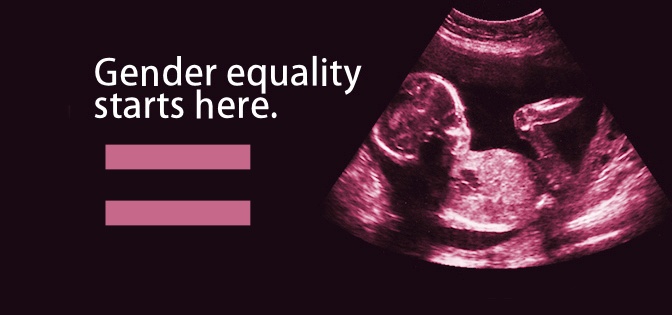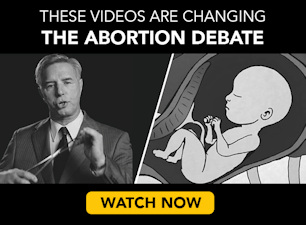
Abortion advocates: ‘Discrimination’ can’t apply to preborn because they aren’t people
What follows doesn’t venture a firm answer. On the one hand, Green refreshingly acknowledges “a set of difficult moral questions that pro-choice progressives tend to ignore,” especially on the subject of gender discrimination. On the other hand, the article quotes a number of pro-choice rationalizations without interviewing pro-life voices to challenge them, especially giving a pass for aborting based on disabilities.
So for all the abortion movement’s talk of championing women against any and all forms of oppression, when it comes to abortion killing someone expressly because she’s female, it suddenly becomes a question of what people subjectively “like” rather than an objective moral wrong.“It’s meant to put women in this queasy position of having to justify two things that might not fit together in one political belief,” said Carol Sanger, a professor at Columbia Law School. “Sometimes women abort for reasons we wouldn’t like—‘we’ being whoever the woman isn’t.”
Admittedly, that may actually be the best rationalization available in a sea of bad options; once you’ve justified a practice by dehumanizing its victims, you can’t turn around and recognize selective aspects of their humanity.
I couldn’t have said it better myself. The idea that anyone can support abortion without impairing their credentials on human rights, equality, or discrimination is a farce based on nothing more than pretending abortion’s victims don’t count as members of the human family. It’s long past time for the American “Civil Liberties” Union to get a more accurate name under its initials;\ (“Anti-Christian Lawyers Union” is a popular suggestion.) And the ACLU’s excuse for their hypocrisy doesn’t help:These prohibitions come with a certain irony: The ACLU, for example, spends enormous resources fighting exactly the kind of discrimination these bills address, especially that which penalizes women, racial minorities, and people with disabilities. But because United States law doesn’t see fetuses as people, the organization doesn’t see a need to protect them from discrimination.
First, even if the intent behind the bills was insincere, the problems they address—the power to use abortion as a tool for sexism—would remain real. Second, it is indeed a real problem in America—Live Action has exposed several Planned Parenthood locations willing to conduct sex-selection abortions, as well as academic evidence that it’s happening here.The reasons for putting these protections in place are “red herrings,” argued Jane Henegar, the head of the ACLU of Indiana. “It’s a tension that has been manufactured. It doesn’t really exist.” But in some places, the tension seems very real. While it’s difficult to track sex-selective abortions in the United States, for example, in countries like India and China where sex-selective abortion is widespread, the ratio of male-to-female births is significantly skewed and has changed demographics over time.
What? It’s not a binary choice; is there any other issue on which pro-choicers would say the offense itself isn’t the real problem, and that we should leave it untouched in favor of uprooting the motive? Of course not, because we understand—or at least used to understand—that laws can stop actions, not ideas.The shift in gender demographics in some places in the world “is scary,” said Marsha Sexton, a lecturer at Berkeley who oversees research and training at the World Institute on Disability. “But prohibiting sex selection isn’t addressing the real problem. The real problem is sexism.”
Of course…but when the child is killed before we know whether the case will be concerning or positive, you take away any possibility of having a good life or overcoming a bad one.From [disability advocate Kim] Dodson’s perspective, these abortion bans aren’t just about fetal health, or a right to life; they’re about what it means to live out that disabled life. Some people thrive, like many of the disabled staffers at her organization [The Arc]. But “we have just as many concerning cases as we do the positive cases,” she said.

It’s not for us to decide when anyone would be better off dead; if it was, society would also tolerate people killing born relatives in the name of mercy (although some radicals want that, too). One reason why is because of cases we cover all the time of babies who beat medical expectations. Another is because the precedent would lead to far more suffering; today it’s supposedly 100% certainty of death, tomorrow it’s lower, the day after that…
Ah, I see. It’s just “language” manipulating us. Never mind that the language is correct. It couldn’t possibly be that we should “think of the fetus as a child,” because he or she really is a living person.No matter the reasons behind it, or whether it survives litigation, bills like Indiana’s can have a powerful cultural effect. After all, “discrimination” is a word used in the context of dignity-based rights; it’s part of the language of personhood. In the Indiana law, “They call [the fetus] ‘unborn child,’” Sanger, the Columbia professor, pointed out. “Usually a ‘child’ is a living person. We get this really beautiful rhetoric; we are subtly persuaded to think of the fetus as a child. The language works on us.”
And therein lies the bottom line: support for abortion can never be reconciled with distaste for prenatal discrimination, because to condemn the latter would admit too much about the former as the ultimate form of prenatal discrimination. Weep not for the pro-aborts trying to square this circle; they’re trapped in a maze of their own creation.
Source: LiveAction New3s









No comments:
Post a Comment